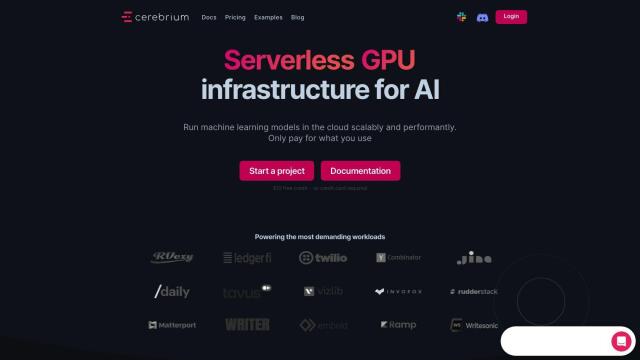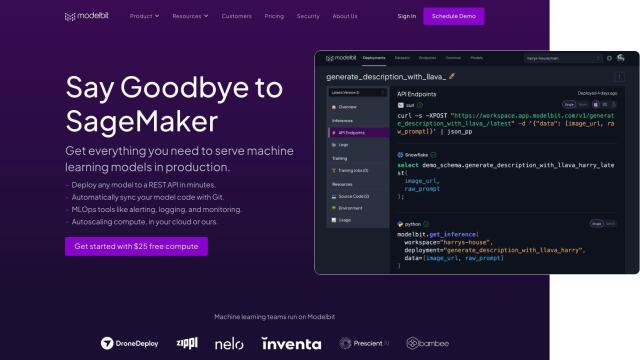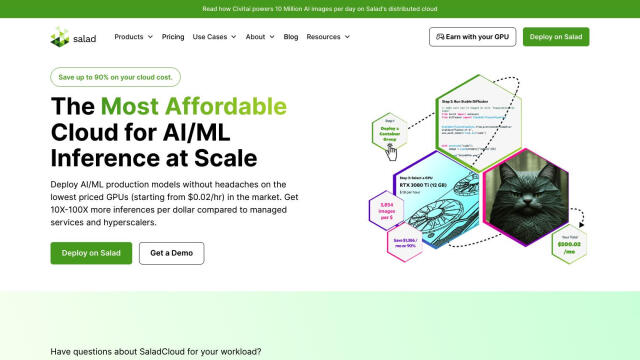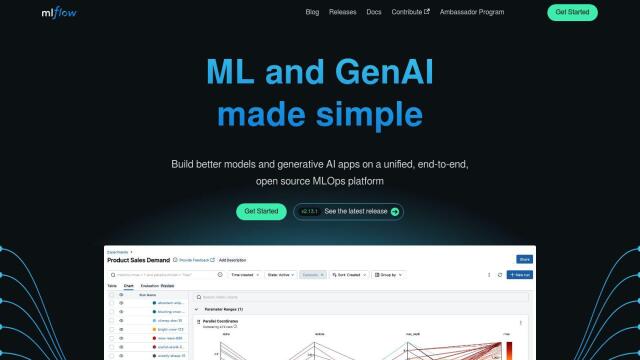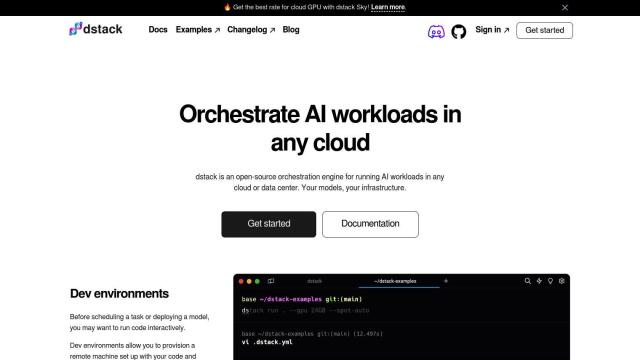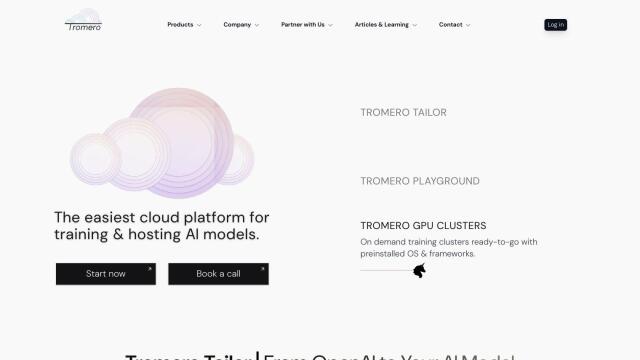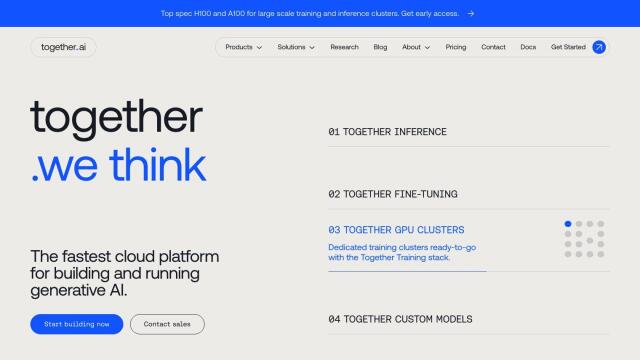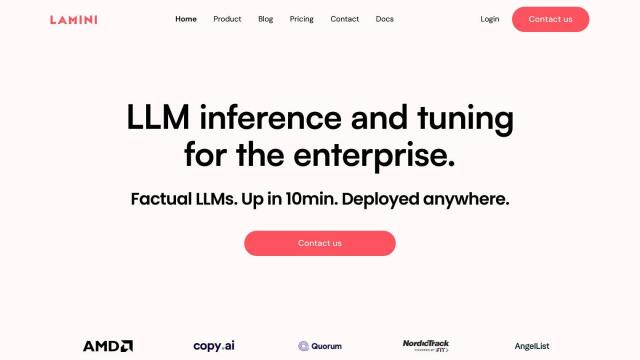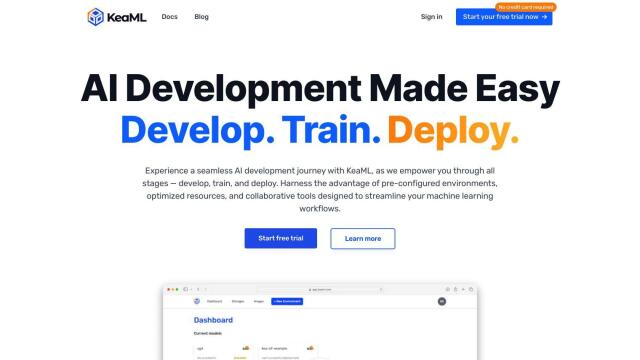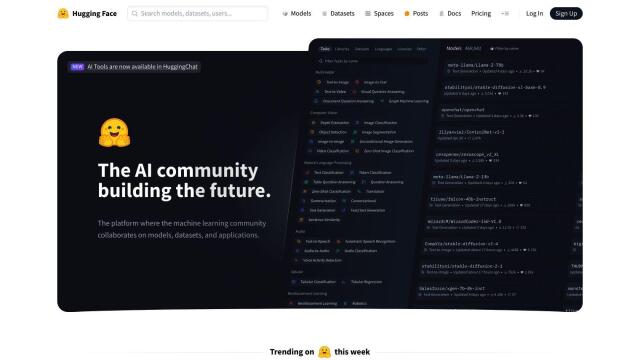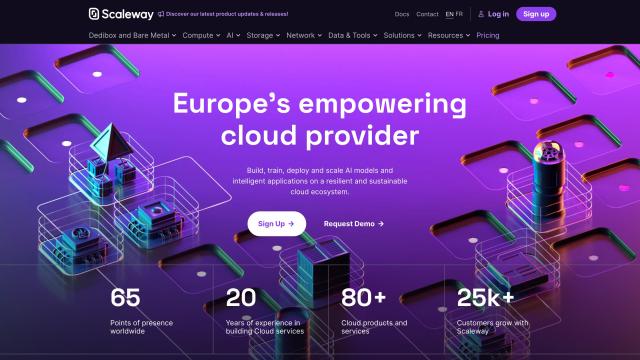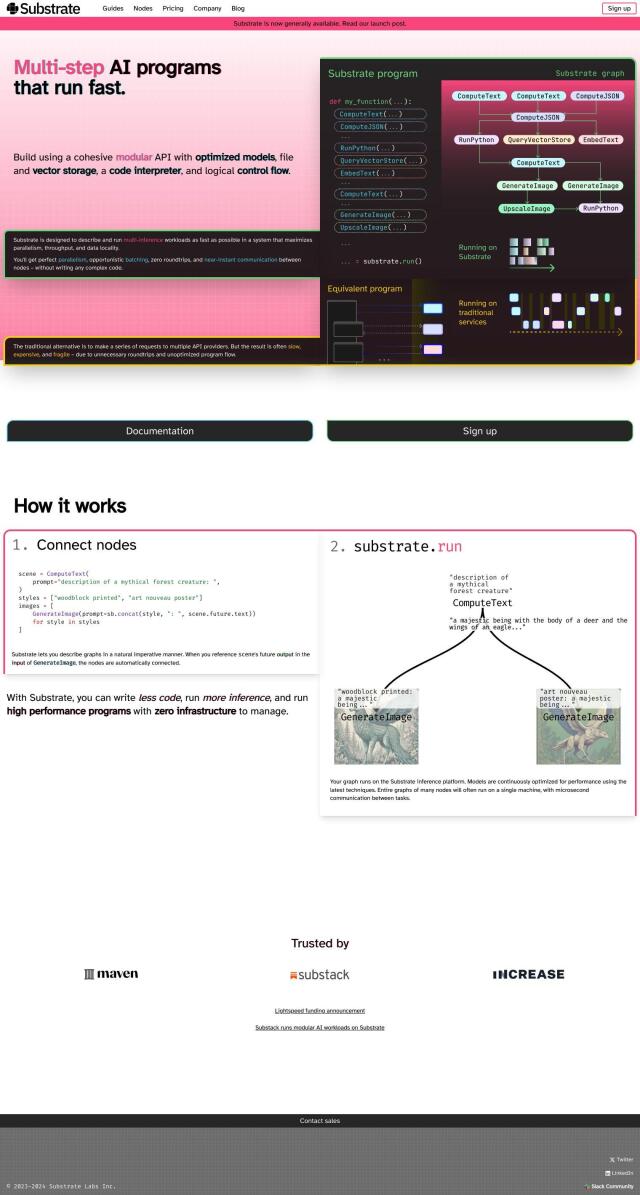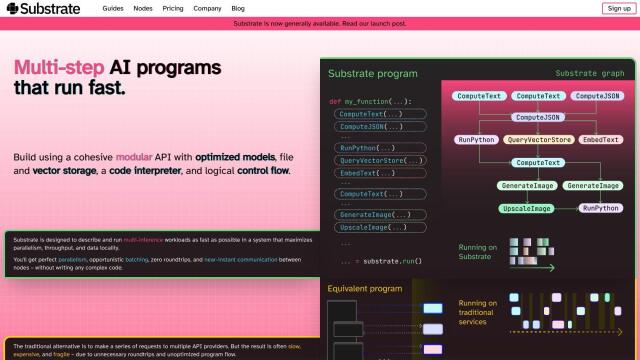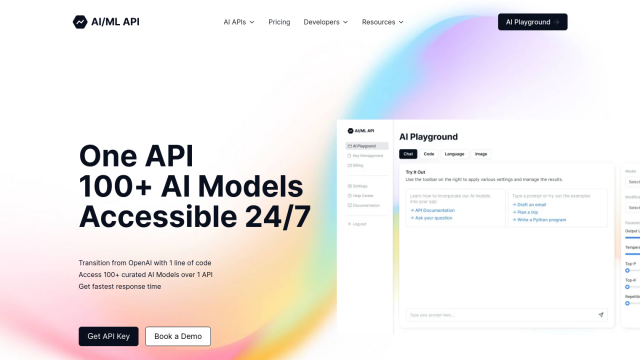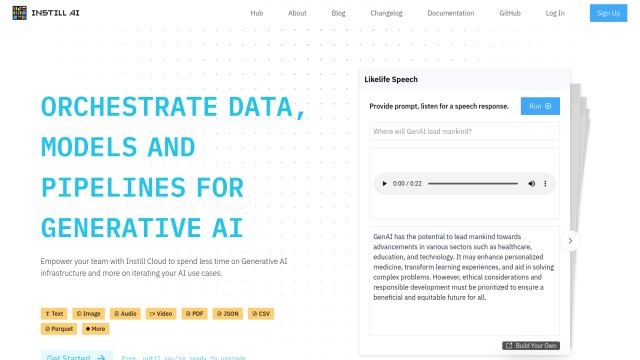
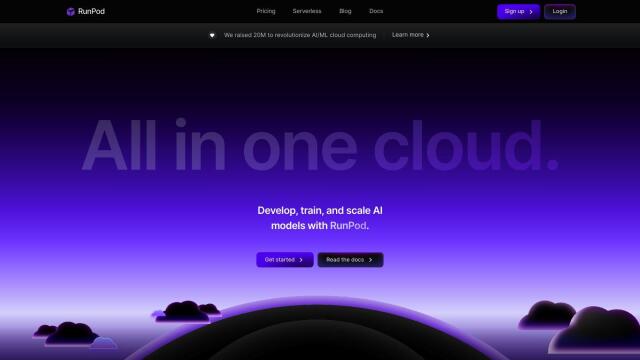
RunPod
If you're looking for a Cerebrium alternative, RunPod is another option worth considering. RunPod is a cloud-based service for training, developing and running AI models. It lets you spin up a GPU pod instantly, offers a range of GPU choices, and supports serverless ML inference with autoscaling and job queuing. The service has more than 50 preconfigured templates for frameworks like PyTorch and Tensorflow, and it includes features like real-time logs and analytics. Pricing starts at $0.39 per hour for GPU instances.


Anyscale
Another option is Anyscale, a service for developing, deploying and scaling AI applications. Anyscale supports a broad range of AI models, including LLMs and generative AI models, and supports features like heterogeneous node control and smart instance management. It offers cost optimization on spot instances and integrates with common IDEs and Git systems, so it can accommodate a variety of workflows. Anyscale also offers a free tier and custom pricing for enterprise customers.

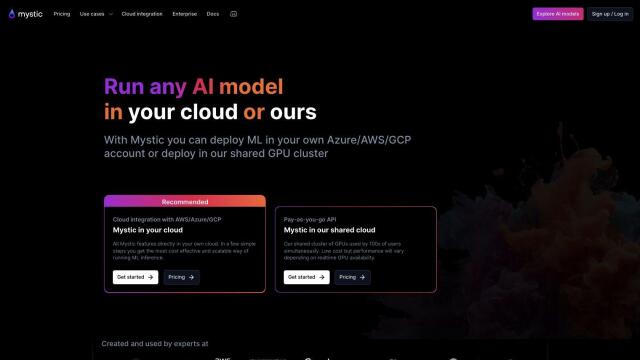
Mystic
Mystic is another good option, specializing in serverless GPU inference. It works with AWS, Azure and GCP, and offers cost optimization options like spot instances and parallelized GPU usage. Mystic also offers a managed Kubernetes environment and automated scaling based on API calls. With pricing based on per-second compute usage, Mystic is a good option for teams that need to process text, image, video or audio data.


Replicate
Last, you could also look at Replicate, an API-based service that makes it easy to run and scale open-source machine learning models. Replicate comes with a library of pre-trained models and one-line deployment, automatic scaling and custom model deployment. Its pricing is based on hardware usage, so it's an easy and relatively inexpensive option for developers who want to add AI abilities without worrying about the underlying infrastructure.

